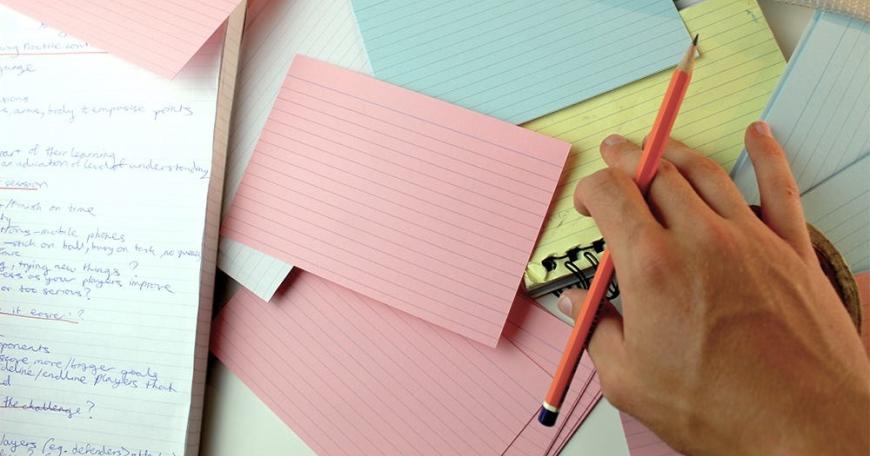
Memorable learning: Insights and techniques on enhancing memory
By MIT Horizon
Going through school prepares us with foundational knowledge. Few of us leave school, however, with a solid foundation in how we learn. Whatever our interests or contexts for learning, understanding some basic aspects of how our minds and brains work can help us be more effective and efficient learners. So, let’s do a quick recap of how people store and retrieve information, and what it means for our learning habits and approaches to studying.
Spacing and testing benefit memory
The scientific exploration of memory largely began with Hermann Ebbinghaus in the late 19th century. Using himself as a test subject, Ebbinghaus generated lists of nonsense words and tried to memorize them, marking his learning and testing progress carefully. His landmark research revealed a number of interesting effects that continue to be explored. One effect is that restudying after a delay (like, after sleeping) is more beneficial than having additional up-front study time. This effect — information is better learned when it is studied spaced over a longer period of time compared to when it is studied repeatedly in a shorter period of time — has become known as “the spacing effect.”
Research into the mechanisms underlying this effect finds that when knowledge is somewhat more difficult to retrieve from memory, the act of trying to pull that information out strengthens the memory, making it more likely to be remembered in the future. Giving people more opportunities to recall information creates stronger memories compared to just rereading or going over material. Research on the phenomenon of retrieval practice, also known as the testing effect, has continued to illustrate the utility of this effect.
So, what does this mean for learning? Well, when deciding whether to spend your limited learning time reviewing notes vs. using flashcards to quiz yourself, the research is clear that testing your memory is the way to go. And, if you want to give your learning a boost, try to write out your responses from memory rather than giving yourself a multiple-choice kind of question.
Generating responses helps learning
This leads us to the next helpful finding, the generation effect, which is the idea that memories are more robust when people generate the to-be-remembered information rather than passively integrating it, such as through reading or hearing. Some of the studies that illustrate this effect are simple but clever. For example, Norman J. Slamecka and Peter Graf (1978) showed people lists of pairs that are associated in different ways, like opposites such as “long-short” or rhymes such as “cave-save.” While in the learning phase, some participants read these pairs, and others were only given cues and had to generate the target word themselves. That is, they were given “long-s____,” told that the words are opposites, and asked to write the word in themselves.
Then, everyone was given a multiple-choice test, so they had to recognize what the right answer for each pair was. They found that people who generated the words themselves had much higher performance on this test. The findings have been replicated and are not limited to simple list learning; the same effect has been found in deeper, conceptual learning.
There are many techniques you can use to integrate this finding into your learning habits, such as rewriting your notes into different words, explaining ideas to your friends or family, and coming up with analogies or metaphors that could demonstrate your understanding. As we covered when talking about tutoring in the age of Generative AI, learning is not a spectator sport, and the more you can actively process the information you are trying to learn, the better off you will be.
Research shows that memory is affected by different study schedules and how the information is learned and practiced. This memory research has served as a foundation for research in cognitive and educational psychology, which has found that instruction should aim to give students multiple, spaced-out opportunities to use and reuse information in varied, constructive ways. Whether designing new educational opportunities for learners, evaluating different providers, or starting on a personal learning journey, aligning with how people store and retrieve information will help deliver more impact when it comes to learning.
Originally published at horizon.mit.edu.
Memorable learning: Insights and techniques on enhancing memory was originally published in MIT Open Learning on Medium, where people are continuing the conversation by highlighting and responding to this story.

